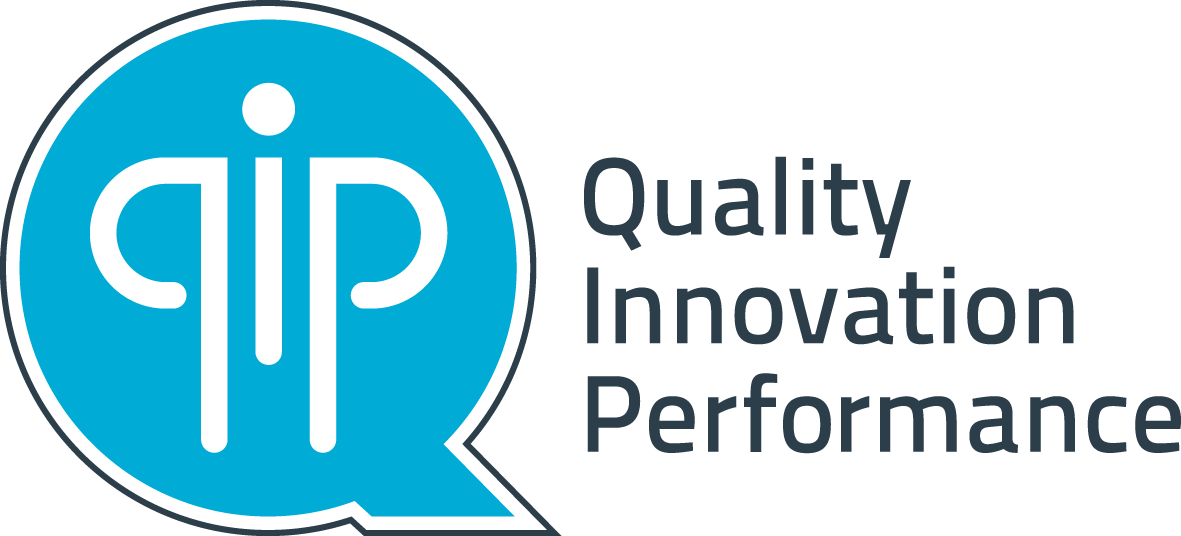Latest news

Meet Some of QIP’s Client Liaison Officers
Navigating the accreditation process—especially with the introduction of short-notice assessments—can be challenging. At QIP, our Client Liaison Officers are here to support you every step of the way. Whether you need guidance on documentation, clarification on assessment requirements, or help preparing for accreditation, our team is available during business hours, and at no extra cost—it’s all just part of our service.
Our Client Liaison Officers bring extensive experience in healthcare, client engagement, and quality improvement, ensuring a seamless and successful accreditation journey for healthcare organisations.
Get to know Sienna, Kayla, Jenn, and Ellie, just four of our dedicated Client Liaison Officers, as they share insights into their roles, expert accreditation tips, and how they help QIP clients navigate the process with confidence.
Meet Sienna
Sienna Wade is a Client Liaison Officer at QIP, bringing a strong background in healthcare and accreditation to her role. Holding a Bachelor of Psychological Science, Sienna combines her understanding of psychology with significant experience in medical practice operations.
With five years of experience as a Senior Receptionist across two general practices, Sienna developed an in-depth knowledge of the general practice accreditation process. This expertise facilitated her transition to working with Diagnostic Imaging Services where she played a key role in supporting them to improve standards and maintain their accreditation.
More recently, Sienna has expanded her skills and experience to include delivery of personalised accreditation support to clients being assessed against the NSQHS Standards and RACGP Standards Edition 2 for prisons. Passionate about quality improvement, Sienna is dedicated to helping healthcare services work toward achieving and maintaining accreditation success.
Can you tell us about a typical day as a Client Liaison Officer? How do you support healthcare teams in navigating the accreditation process?
A typical day as a Client Liaison Officer involves managing client relationships with personalised support, providing guidance throughout the accreditation process, and ensuring smooth communication between QIP and its clients. We act as the dedicated point of contact for healthcare services, offering ongoing assistance and advice to help them navigate accreditation with confidence.
Short-notice assessments have resulted in a big process change for NSQHS Standards clients, how can clients best prepare for these?
With short-notice assessments now part of the accreditation process, it’s natural to feel uncertain about when your assessment will occur. To help ease this concern, we offer tailored engagement sessions for hospitals with complex accreditation requirements, providing an opportunity to ask questions and gain clarity on what to expect. We also encourage clients to reach out to their Client Liaison Officers whenever they have questions, ensuring you receive timely, personalised support. In addition, we send regular email communications outlining key steps and deadlines, so you know exactly what to prepare for at each stage. Taken together, these measures provide reassurance and help our clients feel more confident and prepared throughout the accreditation process.
From your experience, what are some of the key tips you can share that contribute to a successful accreditation outcome?
One of the most important steps clients can take is ensuring all key documents are regularly reviewed and kept up to date. We encourage services to review their documentation not just at each accreditation cycle but also on a quarterly basis to maintain readiness.
Timely submission of essential items—such as Not Applicable justifications, Non-Exclusion Dates, draft timetables, and Conflicts of Interest (COI) forms—also play a crucial role in helping us plan assessments effectively.
Having a clear plan in place for when the notification of the short-notice assessment occurs is another key factor. This includes logistical considerations such as how assessors will access IT systems and any catering required, communication channels for providing prompt updates to your staff, and allowing flexibility in the timetable, which may need to be adapted day by day throughout the assessment. By staying proactive and well-prepared, clients can navigate the accreditation process more smoothly and with greater confidence.
What do you enjoy most about working with healthcare services?
Seeing clients successfully achieve accreditation and knowing that we’ve supported them throughout the process is incredibly rewarding. It’s great to witness the positive impact accreditation has on healthcare services and to know that we’re contributing to better patient care and safety.

Meet Kayla
Kayla Drolc is a Client Liaison Officer at QIP, bringing over 10 years of experience in customer service, where she developed a strong ability to deliver exceptional client interactions and foster positive team dynamics. In recent years, she transitioned into administrative roles, expanding her leadership skills and gaining valuable experience as a team lead.
Dedicated to professional growth, Kayla thrives on contributing to the success of healthcare teams. She lives by the motto: “One team, one dream.” As a Client Liaison Officer for the NSQHS Standards, Kayla is committed to guiding healthcare services through their accreditation journey. She’s on hand every step of the way, providing the guidance needed to help them achieve high standards of care, safety, and quality throughout their accreditation journey.
Outside of work, Kayla enjoys adventure and loves exploring new cities and countries. A passionate cat lover, she has adopted two rescue cats who keep her busy when she’s not planning her next trip.
Can you tell us about a typical day as a Client Liaison Officer? How do you support healthcare teams in navigating the accreditation process?
A typical day as a Client Liaison Officer at QIP involves guiding healthcare teams through the accreditation process by providing guidance on understanding standards requirements, offering training on our accreditation platform, and ensuring documentation is in order. Our role is to support clients in addressing accreditation related queries and challenges helping them feel well-prepared for their assessments.
Short-notice assessments have resulted in a big process change for NSQHS Standards clients – how can clients best prepare for these?
One of the biggest challenges for healthcare services undergoing NSQHS Standards accreditation is navigating the short-notice assessment process. If you’re ever unsure about what’s required or have any questions, please give us a call – we’re here to help. In addition to personalised support from your Client Liaison Officer, we offer information sessions if required, regular email communications outlining key steps, and a comprehensive evidence guide to assist you in preparing. By staying engaged and utilising these resources, you can approach accreditation with confidence, knowing you have robust systems in place to meet the required standards.
Drawing on my experience, here’s some practical advice for a successful accreditation outcome:
- Planning ahead and continuously refining your processes is essential—it ensures everything is in order well before your assessment.
- Take full advantage of the resources available to you as a QIP client, including the User Guide for Health Services, information sessions, and regular email updates outlining key steps.
- Proactive engagement, ownership of the accreditation process, and fostering a culture of continuous improvement can really make a difference.
These steps will help set you up for success throughout your accreditation journey.
What do you enjoy most about working with healthcare services in hospitals?
It’s incredibly rewarding to see clients achieve positive accreditation outcomes and embrace the concept of continuous improvement. Since starting with QIP, I’ve had the privilege of working with some of the country’s leading health service organisations. I’m proud to be part of a team that makes a real impact, guiding healthcare services to deliver high-quality, patient-centred care.

Meet Jenn
Jenn has been a dedicated Client Liaison Officer at QIP for nearly two years, bringing a strong background in client engagement and support. She began her career with QIP in the Community Team before transitioning to the Clinical Team, where she continues to play an active role in supporting healthcare organisations through the accreditation process.
With experience in roles such as Lead Verification, Business Support Specialist, and Engagement Coordinator, Jenn has a growing understanding of accreditation and quality improvement. This varied experience has supported her development as a Client Liaison Officer, enabling her to build relationships, support communication processes, and assist clients through their accreditation journey. Dedicated to supporting healthcare services, Jenn assists organisations in working toward achieving and maintaining accreditation with confidence.
How do you support healthcare teams in navigating the accreditation process?
I assist clients with all queries related to the accreditation process, from administrative support to accessing and using the QIP accreditation hub. My role is to ensure each client has the guidance they need to navigate the accreditation process smoothly and efficiently.
What is your top tip for helping clients ensure they have a smooth Primary and Community Healthcare Standards accreditation experience?
My top tip is to engage with our QIP Client Liaison Team who are there to help answer queries and to clarify any misconceptions about the accreditation process. While choosing to be accredited against the Primary and Community Healthcare Standards is voluntary, once you opt in, it’s important to remember there are specific requirements around the quality of evidence to be submitted. To ensure clients can feel confident in understanding the requirements and timelines, I offer support through Teams meetings. During these sessions, I guide clients through the process and offer tailored support. This approach ensures that clients understand the commitment involved and the necessity of submitting the correct documentation.
Drawing on my experience, here’s some practical advice for a successful accreditation outcome:
- Take a team-based approach to collecting evidence so that the right people contribute the correct information.
- Keep on top of deadlines, particularly with your self-assessment – starting early allows you to work through the requirements at your own pace.
- Make sure to read any QIP reminder emails as they help clarify your requirements throughout each stage of the process.
- And if you ever have any questions or need clarification about the accreditation process, don’t hesitate to reach out to the Clinical Services Team for personalised support.
What do you enjoy most about working with Primary and Community Healthcare services?
I love seeing small businesses develop new skills and apply them to their daily work. It’s incredibly rewarding to support clients from the beginning of their accreditation journey through to completion, knowing that the process is helping them strengthen the quality and safety of their services.
 Meet Ellie
Meet Ellie
 Meet Ellie
Meet EllieEllie Strevens is a Client Liaison Officer at QIP, with a strong background in healthcare operations and client engagement. Her professional journey began in a call centre for a national medical service, where she quickly demonstrated her problem-solving abilities and organisational strengths. She progressed into the role of Practice Coordinator, focusing on compliance and patient management – experience that continues to underpin her work supporting QIP clients today.
Holding a Diploma in Business, Ellie combines sound business knowledge with hands-on healthcare insight. More recently, she has expanded her expertise by supporting services working to achieve accreditation against the Ambulance and Cosmetic Surgery Standards, in addition to the NSQHS Standards. Ellie embraces the learning opportunities associated with supporting new standards and accreditation requirements, and is proud to play a role in strengthening safety and quality across a wide range of health service settings.
Can you tell us about a typical day as a Client Liaison Officer? How do you support healthcare teams in navigating the accreditation process?
Each day starts with reviewing and responding to client emails and queries, followed by any outstanding follow-ups from the previous day. Staying in close communication with clients is key, so I regularly check in just to ensure everything is on track and they feel prepared for their upcoming accreditation assessment. Whether it’s providing clarification on a certain requirement or just offering encouragement, we’re here to support our clients every step of the way.
From your experience, what are some of the key factors that ensure a successful accreditation outcome?
Open and ongoing communication makes all the difference. We always encourage our clients to reach out with any questions – big or small. It’s far better to ask for clarification than to feel unsure about any part of the process. Accreditation can be daunting, but knowing there’s someone available to help removes some of that stress. We’re here to make things easier and clearer wherever we can.
How does QIP’s approach to accreditation support continuous quality improvement in hospital settings?
One of the key tools we use is the ‘gap analysis-like’ feature in AccreditationPro, QIP’s online self-assessment tool. It’s an exclusive resource for QIP clients that clearly highlights which areas are assessment-ready and which may need a little more attention. This tool supports clients to regularly review and update their documentation, policies, and procedures, andalso helps us identify where additional support might be needed. It’s a practical way to promote continuous improvement while tailoring our assistance to each client’s needs.
What do you enjoy most about working with healthcare services as they undertake accreditation with QIP?
Helping clients feel supported during what can be a stressful period is incredibly rewarding. It’s great to know that our clients trust us and feel comfortable reaching out whenever they need assistance. I also love learning about the different ways hospitals operate – it makes each day unique and gives me even more respect for the work these services do to keep their communities safe and healthy.




